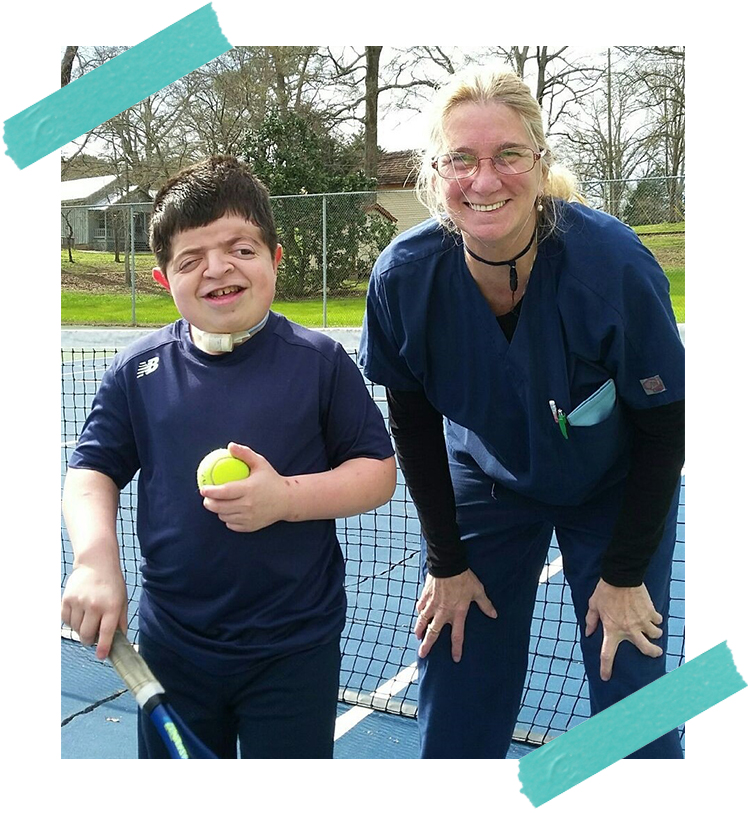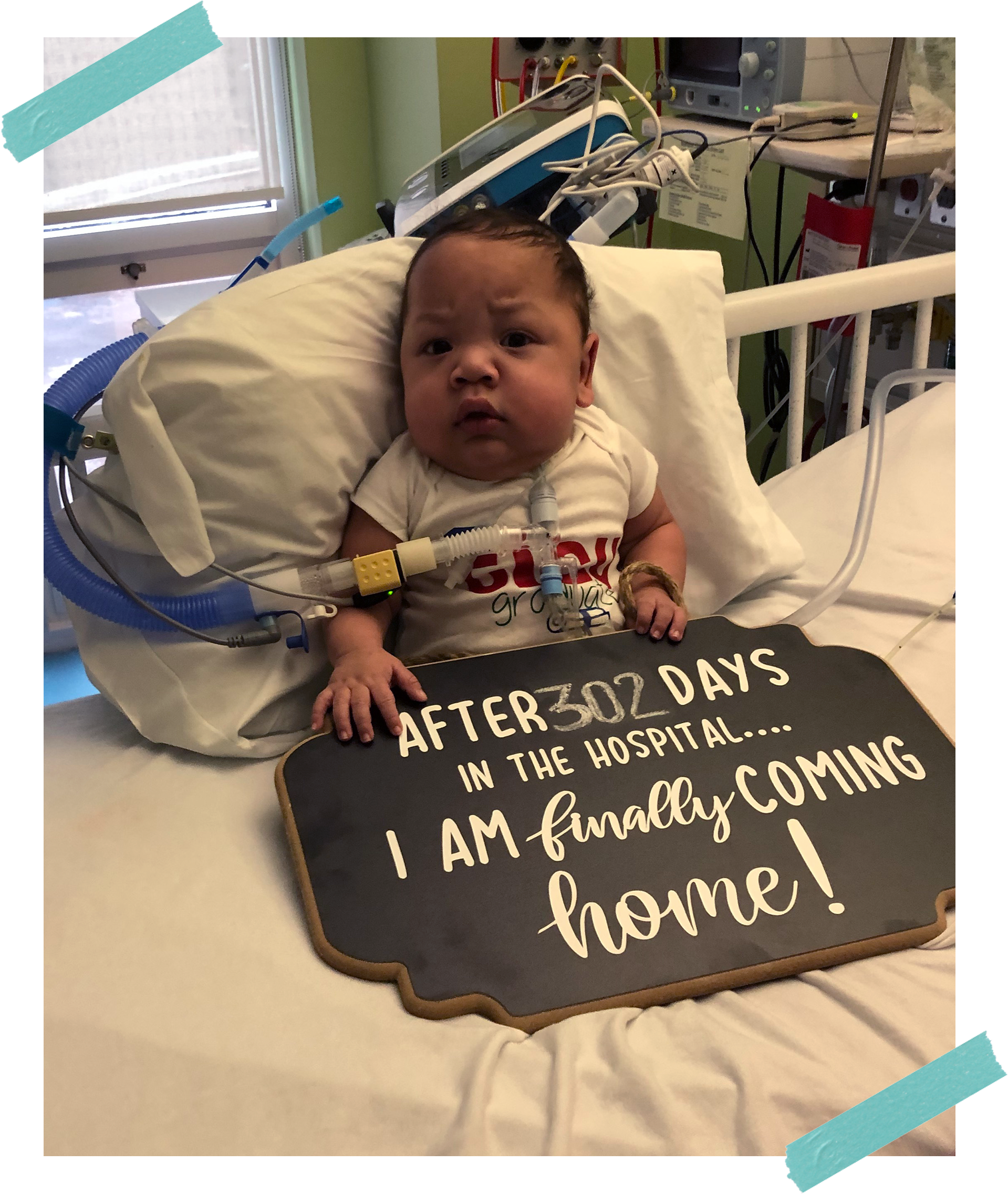Pediatric Home Care Services for Your Family

Enabling Families to Be Families
What We Offer
Pediatric Home Care Services
There’s no way around it: Caring for a medically complex child is hard — but you don’t have to do it alone. At Advanced Care Partners, we understand the challenges and struggles that your family faces on a daily basis, and our highly trained pediatric nurses are here to provide the support and care when you need it most. Our pediatric services are offered around the clock and are covered by Medicaid, public school systems, private insurance, or private pay.
Types of Insurance Qualifications
GAPP
Georgia Pediatric Program (GAPP) is a Medicaid program for medically fragile children under the age of 21. GAPP covers in-home skilled nursing care and personal care support services for our medically complex children. Services are approved based on the child’s medical needs.
We work with you and your child’s doctor to apply for GAPP. Our intake team has the right expertise to help you to get approved for the care you need.
Katie Beckett Waiver
The Katie Beckett Waiver, or Deeming Waiver, is a Medicaid eligibility category for children under the age of 18. When a family has a higher income than the Medicaid level, the Katie Beckett Waiver is used to “waive” the family’s income and base the approval decision on the child’s needs.
If the child qualifies for the Katie Beckett Waiver, they become eligible for services available under the Georgia Pediatric Program (GAPP) Medicaid plan.
Private Insurance
Private insurance plans with Anthem BCBS, CIGNA, United Healthcare, AETNA, and other major insurances may cover our services. ACP will work with you to acquire the proper authorization from your insurance company. Our goal is to make the intake process as smooth as possible for you.
Private Pay
Private pay is an option that is fully funded by the patient/family. Nursing care and personal care services are available for in-home or out-of-home support. Private pay can be an option for families in need of additional hours of care not covered by Medicaid or other payers.
Parent Testimonials
COVID-19 Updates
ACP is fighting by your side against the spread of this threat.
Stay up-to-date on the latest news through our communications page.
Resources for Parents

Blog
Catch up on the latest news and find out what’s happening at ACP.

Financial Resources
Learn about the insurance approval process and Medicaid program applications.

Helpful Links
Explore a list of useful sites we’ve found that our families need.

Awards
Celebrate with ACP as we honor our caregivers of the month, patient graduations, and more.
Frequently Asked Questions
Can I receive nursing services and personal care support services at the same time?
Under the GAPP program, you can be approved for both services, but these services can’t be delivered at the same time; they can’t overlap. That means the CNA and the nurse can’t both be working with the patient. GAPP normally identifies a need for personal care support if the patient is an older child where there is a medical necessity for additional help for lifting, bathing, etc.
Under the COMP/NOW waiver program (over 21 years of age), services are permitted to overlap.
I’ve started a new job and got private insurance for my child. Do I need to inform ACP?
If your child is now covered by private insurance or your employer changed insurance plans, you MUST notify ACP immediately. We will need a copy of the front and back of your insurance card. State Medicaid guidelines require ACP to use Medicaid as the payer of the last resource, which means we are required to exhaust any home care benefits from the private insurance before billing Medicaid.
I split custody of my child on the weekends. What do I need to do?
We will need to know the schedule and location of both parents. We will need to notify GAPP of the split addresses and perform a home safety check in both houses.
I believe my child deserves more hours than what was approved by GAPP or another insurance. How can I appeal the decision?
Once your child is approved by GAPP for the first time or if their prior authorization was renewed, you will receive a letter from the State, detailing the hours approved. The appeal (reconsideration) process is as follows:
- The patient’s primary caregiver receives a letter from GCMF stating the approved hours. The primary caregiver has 30 days from the date of the letter to request a reconsideration.
- Begin to collect additional documentation to support the request:
- Primary caregiver letter stating why it is medically necessary for her/his child to have additional hours — must have a number of hours requested
- Letters of Medical Necessity from doctors to support the request
- Any additional discharge summaries, hospital notes, etc. that would support the request
- Mail all letters and documentation to the address on the letter within 30 days of the date on the letter.
- GAPP has 30 days to approve or deny the request.
- If GAPP denies the request for reconsideration, the primary caregiver can request a hearing.
My child lost Medicaid eligibility. What should I do?
If your child loses Medicaid eligibility, the home nursing for your child must stop immediately and cannot be restarted until you have it reinstated. Please be sure to open all mail from the Social Security Office and DFCS. In many cases, the loss of Medicaid can be attributed to not reading or receiving the correspondence and following the directions in a timely manner.
ACP checks Medicaid eligibility regularly, however, if you know your Medicaid has been rendered inactive, it is your responsibility to notify ACP ASAP.
I am moving out of state. Can I keep GAPP?
GAPP is Georgia’s state program for Medicaid that’s exclusively for residents of the state of Georgia. If you are moving out of state, we recommend that you call the Social Security and Medicaid offices in the state you are moving to as soon as possible, as some states can take up to 60 days to process approvals.
How do I use my approved hours by GAPP? Do unused hours roll over?
No, GAPP grants the hours in a monthly block. These hours must be used during that month, and any hours not used are lost and cannot be carried over. ACP’s mission is always to staff 100% of your approved hours. If you need to add or cancel any shifts, it must be done through the ACP’s office, not directly with the caregiver.
When it comes to hospitalizations, ER visits, and doctors’ appointments, what do I need to inform ACP about?
If the patient has a scheduled surgery or doctor’s appointment, please notify your Scheduler as soon as you have it planned. This is important so we can ensure that your caregivers are scheduled accordingly.
Any unscheduled hospitalizations or ER visits must be communicated to ACP. We are required to submit certain paperwork to GAPP when hospitalizations or ER visits occur as well as perform post-hospitalizations visits.
My child will be going to school soon. Can ACP help me with school nursing care?
During the school enrollment process, inform your district that you have a medically complex child that requires one-on-one nursing. At that time, they will schedule an Individualized Education Program (IEP).
The purpose of the IEP is to determine any specialized services your child requires. A member of the ACP team will attend the IEP for additional support and to answer any nursing questions. Be sure to have a letter of medical necessity from one of your child’s doctors stating it is medically necessary for your child to have one-on-one nursing while attending school.
I am a foster mom/dad. Is there any additional information I need to provide to ACP?
We will need the DFCS case manager’s name, phone number, and email address. They will be the ones signing all documents on behalf of the patient.
Can ACP choose to terminate its services with the patient at any time?
Yes. ACP will discharge any patient who does not comply with company, state, and/or federal regulations. ACP takes compliance seriously and will not serve non-compliant clients. ACP will give a 30-day written notice to the client before discharge is completed. When safety or compliance are in jeopardy, ACP will not tolerate broken rules. Below are some of the most common reasons for non-compliant issues:
- Client doesn’t allow Clinical Supervisors to perform monthly supervisory visits or post-hospitalization visits (both are time-sensitive and mandatory by the state).
- Confirmed illegal activities in the home.
- Anytime the home is verified as an unsafe environment for our caregivers.
- Abuse of the patient. In most cases, DFCS will be involved to resolve the situation.
- Client does not follow the standard of care or GAPP Letter of Understanding.
- ACP can no longer staff the case due to unforeseen circumstances.
- Client disrespects, mistreats, or discriminates against ACP’s caregivers.
- Client constantly fails to open the door to ACP’s caregivers.
- Client constantly fails to communicate changes to ACP such as patient hospitalizations, ER visits, MD appointments, vacations, etc.
- Client fails to obtain proper medication or supplies that are not ACP’s responsibility but vital for the patient’s care and health.
- Client fails to communicate the truth to ACP.
- Client constantly requests ACP’s caregivers to perform tasks that are not part of their duties.





